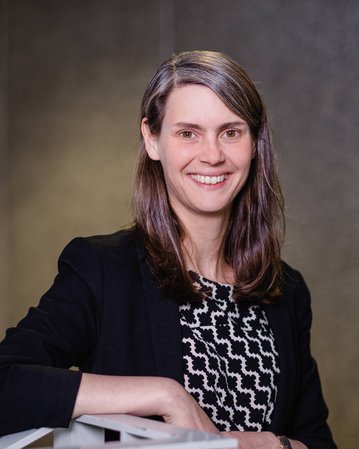Professorin für frühkindliche Entwicklung
| E-Mail: | [email protected] |
| Telefon: | +49365-773-407-25 |
Professorin für frühkindliche Entwicklung
| E-Mail: | [email protected] |
| Telefon: | +49365-773-407-25 |

Prof. Dr. Christine Michel ist seit Dezember 2022 als Professorin für frühkindliche Entwicklung im Studiengang Inklusive Kindheitspädagogik tätig.
Nach ihrem Diplom-Studium im Fach Psychologie an der Universität Heidelberg wurde sie 2016 am Lehrstuhl Entwicklungs- und Biologische Psychologie der Universität Heidelberg promoviert. In ihrer Doktorarbeit erforschte sie (neuronale) Aufmerksamkeitsprozesse in der frühen Kindheit und die Frage, wie Säuglinge von anderen Menschen lernen. Als Postdoktorandin ging sie 2016 an das Max-Planck-Institut für Kognitions- und Neurowissenschaften in Leipzig und untersuchte in der Arbeitseinheit „Frühe soziale Kognitionen“ neuronale Korrelate sozialer Interaktionen und Lernprozesse, unter anderem bei Interaktionen zwischen Müttern und ihren Babys. 2017 schloss sie das theoretische Modul zur Weiterbildung Verhaltensorientierte Eltern- Kind- Psychotherapie am Zentrum für Psychologische Psychotherapie in Heidelberg ab.
2020 wechselte sie an die Universität Leipzig und lehrte und forschte als Postdoktorandin am Lehrstuhl Frühkindliche Entwicklung und Kultur. Hier wagte sie in dem von ihr eingeworbenen DFG-geförderten Forschungsprojekt den Sprung vom Denken hin zum Fühlen und erforschte emotionale Reaktionen und Mechanismen, die bei Säuglingen und Kindern in sozialen Interaktionen und Hilfe-Situationen wirken.
Prof. Dr. Michel ist Mitglied in der Deutschen Gesellschaft für Psychologie (DGPs) und im International Congress of Infant Studies und als ad-hoc Gutachterin tätig unter anderem bei Social Cognitive and Affective Neuroscience, Infancy and Child Development.
Forschungsinteressen
* kennzeichnen geteilte Erst- oder Letztautorenschaften